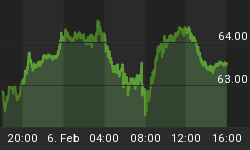Most investors and market pundits continue to misdiagnose the reason behind the worldwide economic malaise. The underlying problem isn't "uncertainty" or any other platitudes Wall Street and politicians like to offer. The truth is that massive sovereign debt defaults (if central banks allow them to be written down honestly) are very deflationary in nature.
Debt defaults destroy the assets of non-bank investors and also wipe out the capital of financial institutions. Without adequate capital, these banks are unable to make new loans and expand the money supply, causing bubbles to burst.
For a good while Wall Street was holding on to the ridiculous idea that the U.S. and China would be spared from a meltdown of the second largest economy on the planet. However, last week's data should have put a dagger through the heart of that notion....
The Non-farm Payroll report showed that the U.S. produced just 69k jobs in May, while the unemployment rate rose to 8.2%. However, the most alarming part of the report was that America lost 15k jobs in the all-important goods-producing sector. GDP posted an anemic 1.9% growth rate and home prices continue to fall--down 2% YOY. China's PMI fell sharply in May, dropping to 50.4, down from 53.3 in the prior month. And Eurozone PMI came out at an alarming 45.1 in the same month, which is well below the line of economic expansion.
Global markets are sounding the alarm of rapidly intensifying deflation. Commodity prices such as oil and copper are in free fall, while equity prices are hurting as well. Japan's Nikkei Dow lost 10% in May alone, which was its worst monthly loss in two years? But Japan isn't alone. The Chinese Shanghai composite is down nearly 20%, Spain's IBEX is down nearly 50%, Italian stocks fell 45% and Greece is down over 60% from the year ago period.
The only market yet to succumb to the carnage is the U.S., whose averages are roughly unchanged for the year. However, the S&P 500 has lost nearly 10% over the last 30 days, and is now in full catch up mode with the rest of the world.
It is simply undeniable that the global economy is closely interconnected. Emerging markets depend on Europe to support their export driven economies and the U.S. depends on foreign economies to support the earnings of S&P 500 companies -- forty percent of S&P revenue and earnings are derived from overseas.
In truth, the real reason why global markets are melting down is because the recession in the Eurozone is quickly turning into a deflationary depression.
For example, take a look at the direction Portugal is headed. This country had negative GDP growth and a 10% unemployment rate in 2010. At that time their 5 year note was just 3%. Now their unemployment rate is 15% and GDP has been down for 6 straight quarters. Their economy cannot possibly survive now that the 5 year note has been in the 15% range for the last year!
The carnage all began when Irish and Southern European banks became insolvent due to non-performing real estate assets. Then the sovereigns borrowed so much money, in order to bail out the banks, that their economies have become insolvent. Now banks find themselves insolvent once again ... this time because they own the debt of bankrupt countries that were shoved down their throat by the ECB's LTROs.
So we now have a situation where insolvent nations are trying to bail out insolvent banks by proposing to borrow more money, which will cause the countries to become even more insolvent. Then, of course, banks are asked to lower their country's borrowing costs by buying more of the debt issued from insolvent nations. Doesn't that sound like it will work out well?
If you can believe it, that is the proposed magic bullet to save Europe.
It's simply a game of counterfeiting chicken. Central Bankers have been on a money printing hiatus, pretending and hoping that the global economic bubbles didn't need their money printing to keep them inflated. However, each and every worsening piece of economic data brings us closer to the eventuality of more central bank intervention. That is the reason why gold soared $65 per ounce on Friday. Gold is now signaling the helicopters may be just over the horizon.















